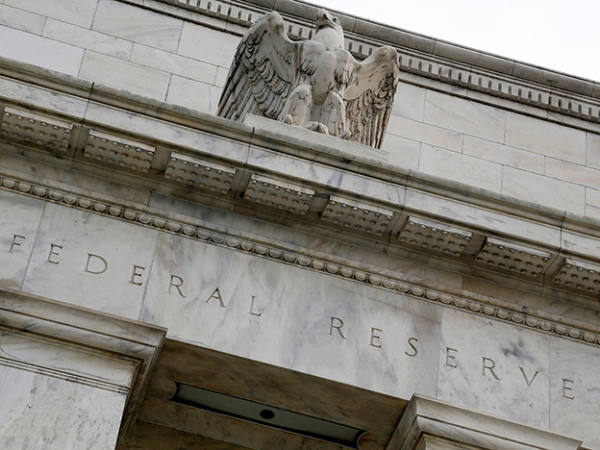Don’t believe stories. This is one lesson to take from the fact that retail investors have lost millions in the last few days as GameStop’s price has slumped by 80 per cent.
What’s unusual here is the story behind GameStop’s rise in the first place. This wasn’t one of GameStop being a great growth stock, but rather an attempt to coordinate a short squeeze and thus to impose big losses upon the hedge funds who had shorted the stock. Posters on the Wall Street Bets sub-reddit, who did so much to boost the stock, talked of making billionaires cry, of exacting revenge for the 2008 financial crisis and of a generational conflict between “boomer” hedge fund managers and millennials who feel alienated from capitalism.
This story was, briefly, successful – enough so to drive the price of a mediocre company up from $20 to over $340 within a few days. Which vindicates a point made by the Nobel laureate Robert Shiller in his recent book Narrative Economics, that “narratives thrive on attachment”. Posters on Wall Street Bets, and indeed the army of small traders who drove GameStop up, were united by hostility to plutocratic hedge funds. They formed a community in which the story about using GameStop to fight big money could spread quickly.
And, for many, it proved expensive. They, however, are just the latest people to learn that narratives are dangerous. In 2000, stories that internet companies would displace firms on the “old economy” cost investors fortunes. And in 2008, stories about a “Great Moderation” caused banks to collapse under the weight of mortgage derivatives. Behind every failed stock is a failed story.
There are some aspects of stories that investors must be on guard against.
First, they spread like viruses. As with viruses, your chances of believing a story increase with the number of contacts you have. And as with viruses, some people are more susceptible than others. Investors who were immune to the story “buy a mediocre retailer” caught the story “let’s sock it to hedge funds.” We should always ask what we are susceptible to: do we believe a story because it’s true, or because we want it to be?
Secondly, whether a story spreads or not isn’t a matter of whether it’s true or not. As Jonathan Swift (who lost a packet in the South Sea bubble) said, “falsehood flies, and the truth comes limping after it.” David Hirshleifer at the University of California at Irvine gives an example of this. We all like to talk about our successes more than our failures. This gives listeners an exaggerated sense of how easy it is to make money from picking stocks, and especially from speculative stocks. The upshot is that they favour active stock picking over passive investment, and speculative stocks over defensive ones – both of which are often errors. We must ask, therefore: is this story representative of the truth, or is it instead a biased sample of what’s really happening?
And in one respect, almost all stories are biased. They impose patterns onto the world and thereby lead us to over estimate how much we understand and under estimate randomness and unpredictability. That encourages overconfidence – which leads us to trade too much and to buy excessively risky stocks and funds.
Worse still, stories can be after-the-fact justifications. An old boss of mine used to say “the price determines the story, not the story the price”. If a share’s price is high enough, it is a “growth stock” regardless of the company’s actual prospects.
We act on stories because we are reason-seeking people, and find reasons even when there are none. Some experiments by Ellen Langer at Harvard University back in 1989 showed this. She tried to jump the queue to use a photocopier, and found that if she just asked to push in many people refused. But when she asked to do so “because I have to make some copies”, most relented. The mere word “because” worked magic. Any reason will do. Stories give us reasons.
And we believe them because stories are what bind us together into communities – be it communities of sub-redditors or the “imagined communities” that are nations bound together by national stories. This is why some anthropologists think we should call ourselves not homo sapiens (“wise man” – really?) but homo narrans.
In this sense, GameStop is like those reality TV stars who leap to fame. They do so not because of any unusual talent but because people like to talk about the same things as others. As Columbia University’s Moshe Adler has shown, this can lead to people becoming superstars without having any more ability than those who toil in obscurity. What happens to people can happen to shares.
Technically speaking, investors don’t need stories at all. In principle we can describe assets by a covariance matrix telling us how each asset moves when every other one does. And we can estimate their expected returns by listing its risks and considering what risk premium each of those risks warrants.
But we don’t do this because we are not desiccated calculating machines, but rather story-telling animals.
Which is why I fear some are drawing the wrong lesson from the GameStop affair. We must not blame losses upon apps that make share-trading easy: to do so is to believe a powerful story – a Frankenstein-inspired fear of new technology. Instead, losses result from behaviour that is deep-rooted in human nature. Being a rational investor requires us to control our all-too-human impulses.










